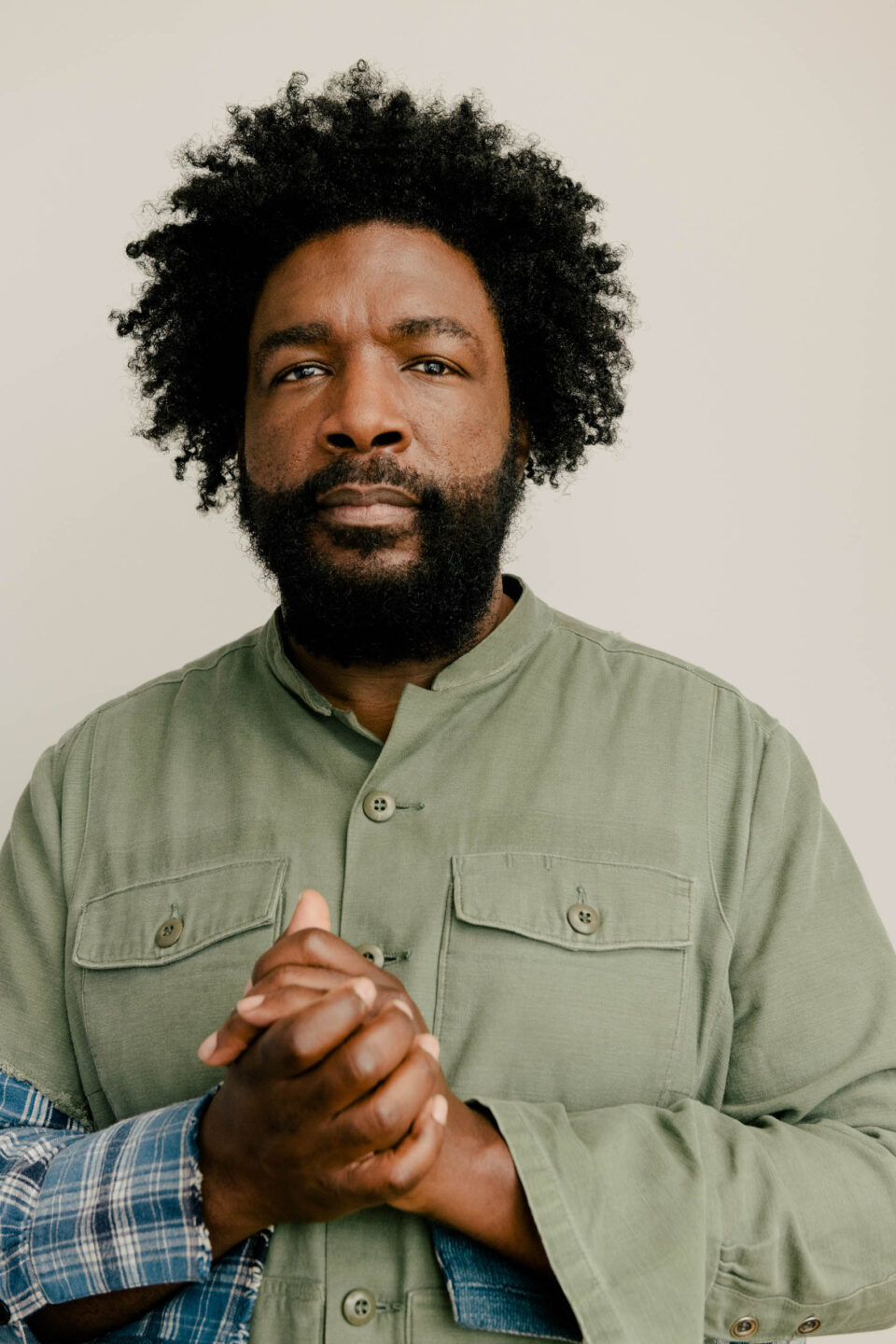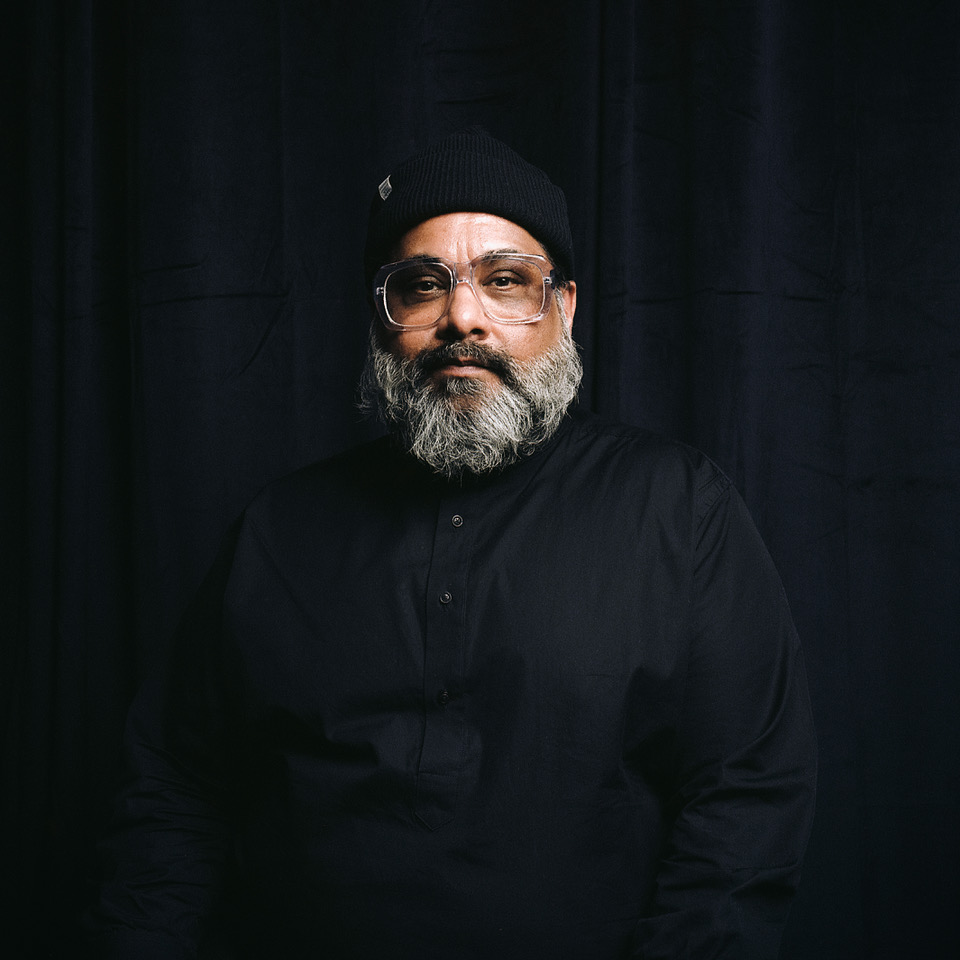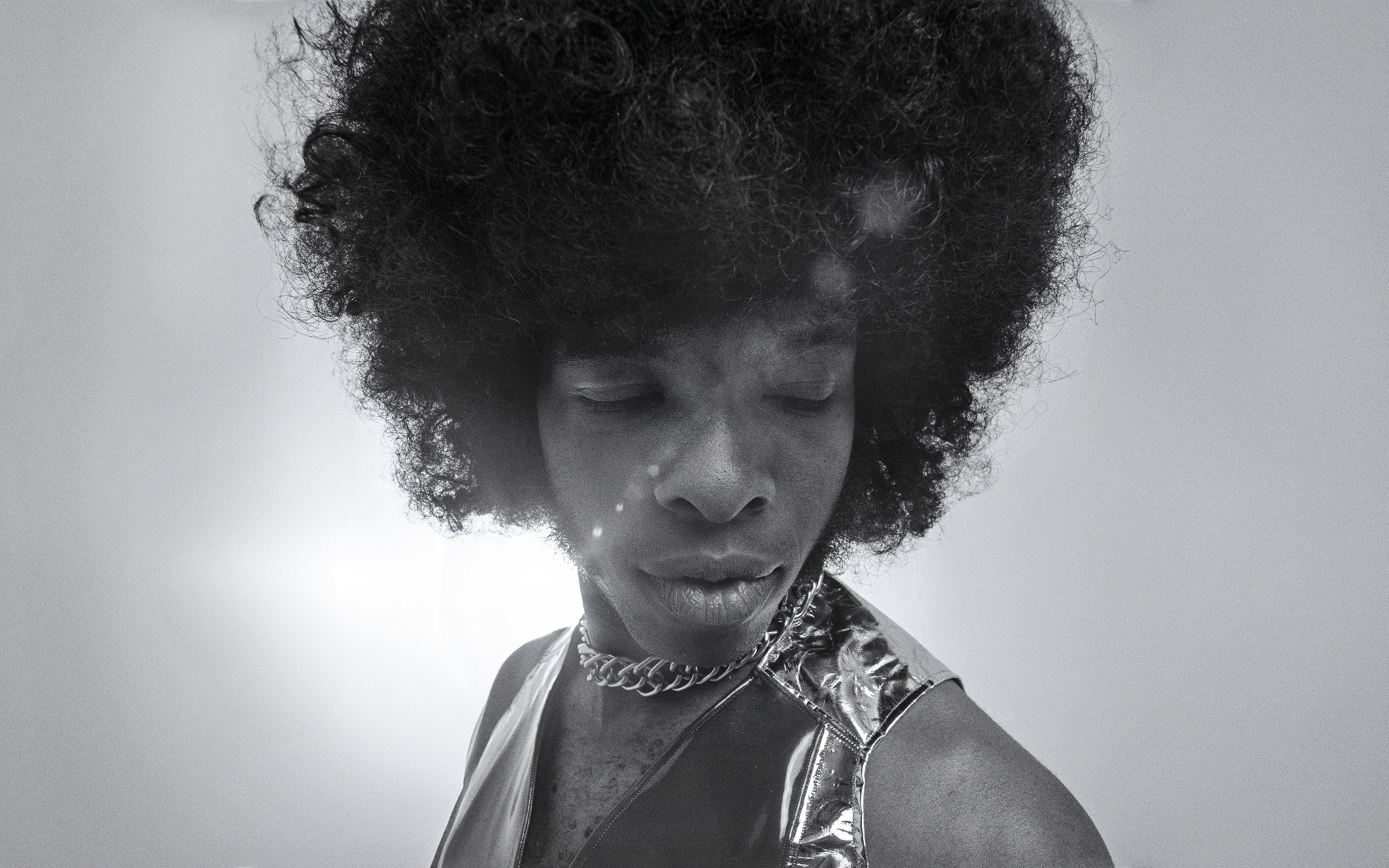Questlove—the director—is having a great fortnight. After dropping his NBC documentary Ladies & Gentlemen... 50 Years of SNL Music, he’s gearing up for the release of his much-anticipated musical follow-up to 2021’s Oscar-winning debut Summer of Soul doc with Sly Lives! (aka the Burden of Black Genius) and its study of Sly Stewart, his Family Stone, and Black music innovators who’ve felt the heartache of what Sly wrote on 1969’s “Stand!”: “There’s a cross for you to bear / Things to go through if you’re going anywhere / For the things you know are right / It’s the truth that makes them so uptight / All the things you want are real / You have you to complete and there is no deal?”
The only other person who gets to share those burdens and joys, the glory of producing Oscar-caliber documentaries such as these, is Joseph Patel. Patel is Questlove’s partner in rhyme, cinematic co-creator/producer, and, starting soon, the director of the much-discussed J Dilla documentary—a topic that introduces this team to more contemporary subject matter that’s also more in line with their own creative origin stories (as well as Dilla’s) in the 1990s. That’s when Patel (sometimes known by his pen name Jazzbo) wrote journalistically for hip-hop magazines such as Urb, Bomb, Straight No Chaser, and Rap Pages, the latter of which published his cover story on Questlove’s band, The Roots.
“It’s all storytelling…that’s what I fell in love with,” says Patel about moving from behind the laptop to behind the camera, from high school zines and radio shows to, in 2003, working for MTV and creating/show-running the hip-hop scene program My Block. “MTV News was grad school for me, the place where I learned to direct, edit, and shoot,” he says before mentioning additional televisual gigs for Vice and The Fader. “My transition from writing to film didn’t feel like a great leap. It was an evolution. And what I’m proudest of, in regard to Summer of Soul and Sly Lives!, is that it’s all still about solid reporting, getting the facts, having secondary sources, and weaving it all together.”
Bringing Questlove’s The Roots into the picture—literally—wasn’t just a print thing for the Northern California native, as the live hip-hop ensemble from Philadelphia occupied one of the first segments that the burgeoning producer created for MTV. “When I got to Philly to meet the band, Ahmir [Thompson] and I just took to each other,” Patel recalls of his first encounter with Questlove. “At his core, he’s a fan. He knew pieces I had written. We argued about records—he’s one of us, the nerdy music-journalist guy who’ll analyze who the better lyricists are and what albums are more definitive. That’s how we bonded.”

photo by Daniel Dorsa
“[Questlove is] one of us, the nerdy music-journalist guy who’ll analyze who the better lyricists are and what albums are more definitive. That’s how we bonded.”
Keeping in touch with his “nerdy colleague” came in handy when Questlove was brought in to tackle Summer of Soul, a film about the 1969 Harlem Cultural Festival, based on 40 hours of unused footage from director Hal Tulchin. In need of a producer who understood the trajectory of the story and the director’s own historical prominence, Q and the team at Radical Media turned to Patel. “I know Ahmir’s shorthand; he speaks in pop cultural references,” notes the producer. “He said that he wanted Summer of Soul to look like what a Public Enemy album sounded like—and I got that.” With a creative producer focused on story and a big-ideas director, flavor and function is this pair’s generational fingerprint, no matter what story they tell.
And if you’re wondering what PE album it is that Summer of Soul and Sly Lives! are referencing, think It Takes a Nation of Millions to Hold Us Back and its Bomb Squad’s frenetic brand of layering and fast cuts witnessed in Questlove’s head-spinning “mixes.” In particular, during the Sly doc, watch for the back-and-forth between producer-interviewees Terry Lewis and Jimmy Jam discussing the making of Janet Jackson’s “Rhythm Nation” and how it sampled the pulsing guitar intro from Sly & the Family Stone’s “Thank You (Falletinme Be Mice Elf Agin).” “I am so in love with that scene, as it’s emblematic of how we come together to tell these stories—and if you know that sample, it’s still amazing, especially when you tie the back half of that scene into the mix.”
“My transition from writing to film didn’t feel like a great leap. It was an evolution... It’s all still about solid reporting, getting the facts, having secondary sources, and weaving it all together.”

These techniques recall the lightning-fast montage at the start of Questlove’s SNL50 film. It's mind-blowing to watch and hear Q and Emergency Broadcast Network co-founder and editor Joshua Pearson going at their decks, fast and furiously. “Understanding how classic Summer of Soul is out of the gate, the pressure of making a second documentary is immense,” says Patel, tying the new movie’s aspirational goals to those of its principle subject, a San Francisco–based DJ turned Black icon whose multi-racial, multi-gender, multi-genre ensemble made psychedelic soul that was relatable to Black, brown, and white audiences across the globe.
“When we did Summer of Soul, Ahmir and I came from the same starting point. We both loved most of the artists. With Sly Lives!, it was he who held great importance for Sly. That was one of Ahmir’s longtime favorite and most influential artists. I didn’t know Sly’s discography in order, but did know his hits, how he tried to win back his fame, that he was a junkie and a drug addict and lived in a camper. The challenge for me was to become fluent so as to best tell his story and use his life and work as an avatar for this larger idea: the burden of Black genius.”
Vernon Reid, Q-Tip, Chaka Khan, André 3000, George Clinton, D’Angelo—most particularly D’Angelo. These are genius artists whose earliest works broke down all barriers of genre, of emotion, of color, of what it means to make Black music. In Sly Lives!, when D’Angelo smokes cigarettes and discusses the impact of what Sly’s music meant to his audiences—and to D’Angelo himself—you can sense the frustration and sadness of having to move forward with the weight of expectation at your back. Perhaps Sly never had the benefit of hindsight, of healing—or, at the very least, a documentarian to talk to.
“After Summer of Soul, Questlove thought about the experiences he’d had, how some of his peers such as D’Angelo and Lauryn Hill sort of self-sabotaged,” states Patel. “Questlove has grown over the last 10 years, gone to therapy, and was able to trace much of what he’d been through back to Sly. Sly was the first Black artist to be held in high regard by the white media in a way that James Brown, Jimi Hendrix, Chuck Berry, and Ray Charles were not. Can you imagine Sly after having just headlined Woodstock, being on the cover of Rolling Stone, Black and white America are both looking to you as if you just solved race relations through your music—what pressure that must have been for him?” Questlove told Patel that when Black artists reach the highest echelons of success, it comes with great baggage: survivor’s guilt of not deserving your rewards, that you can’t handle the insecurity of it all. “Connecting the stories of Sly and everyone else came down to Ahmir’s experiences,” says Patel.
Patel says that Questlove and he could’ve spoken to Sly directly about his problems—his need for lateness, his no-shows, the continued drug abuse—but chose to let rare interviews with Stone and new conversations with others do the talking for the iconic singer. Sly’s health and “his lack of reflectiveness at times” were among the reasons that Patel and Questlove used talking-head “proxies” to comment on Stone, as well as reflecting back on their own lives. “Every night, D’Angelo was asked to come out on stage without a shirt at the height of Voodoo’s fame—and Questlove was an eyewitness to that.” There are plenty of great similarities between Sly and D’Angelo—with André 3000, too, but he took another direction. “When people wanted him to keep rapping, he stopped, learned to play the double flute, and now look at him. Q-Tip, too. He’s happiest when he’s not in the spotlight.”
Along with telling Sly’s tale with empathy and heart, Patel’s job, as it often does, centered on creating the best, broadest narrative that he and Questlove could in two hours while still servicing the deep music heads and crate-diggers devoted to the topic. “We’re writing a pop song of a film with Sly Lives!, not the anthology,” says Patel.
The same might be true, too, of Patel’s full-length cinematic documentary debut with his film on J Dilla, the revolutionary Detroit rapper, producer, and beatmaker with a membership in Questlove’s Soulquarians who died at the age of 32 from complications of TTP and lupus. “This is, in a weird way, the third part of this Summer of Soul and Sly Lives! trilogy,” says the producer-director, who’s just now starting work in earnest on the Dilla doc with Ahmir as this film’s executive producer. “The roles are changed, but the dynamic is the same: We’re telling a specific story about his music innovation and artistry, with the bigger take being about time and what you do with it when you have it all in front of you, then realize that you have no time left at all.” FL







